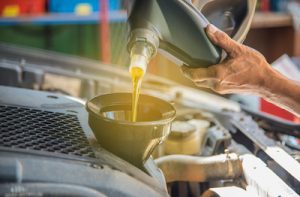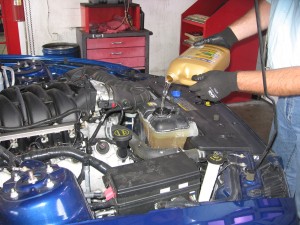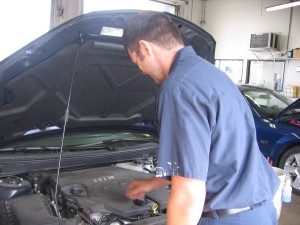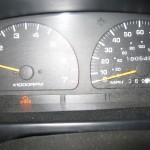When you walk into a quick-lube and ask for an oil change today, you will usually be asked what type of motor oil you want to use. Because cars have changed, the motor oil we put in them has changed too. Here are the motor oil types available and a brief description of the difference between them. This information should help you choose the right motor oil for your car.
Conventional Oil-This is the standard car motor oil. All leading brands carry a motor oil for service level “SL”. “SL” refers to a group of lab and engine tests that the oil is put through in order to meet the standards of the American Petroleum Institute (API). This oil works well in just about every light-duty car on the road. When you choose this oil it is important to change your oil and filter regularly.
Full Synthetic Oil-This motor oil is made for high-tech engines like BMW, Lexus, Corvette, or Mercedes-Benz. It has superior sludge and varnish protection which keeps the engine cleaner. It protects your engine from becoming to hot under severe driving conditions and also protects it in cold temperatures because the oil flows faster when the engine is started.
Synthetic Blend Oil-These have a mixture of synthetic oil and organic oil and are formulated to give engine protection for somewhat heavier loads and higher temperatures. They evaporate less which increases fuel economy. This type of motor oil is popular with people who drive SUV’s and pickup trucks with heavy loads. Synthetic blend oil costs less than full synthetic and just slightly more than conventional oil.
Higher Mileage Oil-We are driving our cars longer now and if your cars odometer reads more than 75,000 miles, this type of motor oil would be a wise choice. This oil is formulated with seal conditioners that restore their shape and increase their flexibility. Rubber seals are designed to swell enough to stop leaks, this oil helps them do that. Higher mileage engines can perform differently than new ones, causing oil consumption, decreased engine performance and more rapid oil breakdown. By choosing higher mileage oil you can reduce oil consumption, improve horsepower and prolong the life of the engine by cleaning buildup and sludge from your older engine.
When you’re trying to determine which type of motor oil to choose for your car, don’t forget to check your owner’s manual and talk to your service technician. They can give you the best advice for your particular situation!





